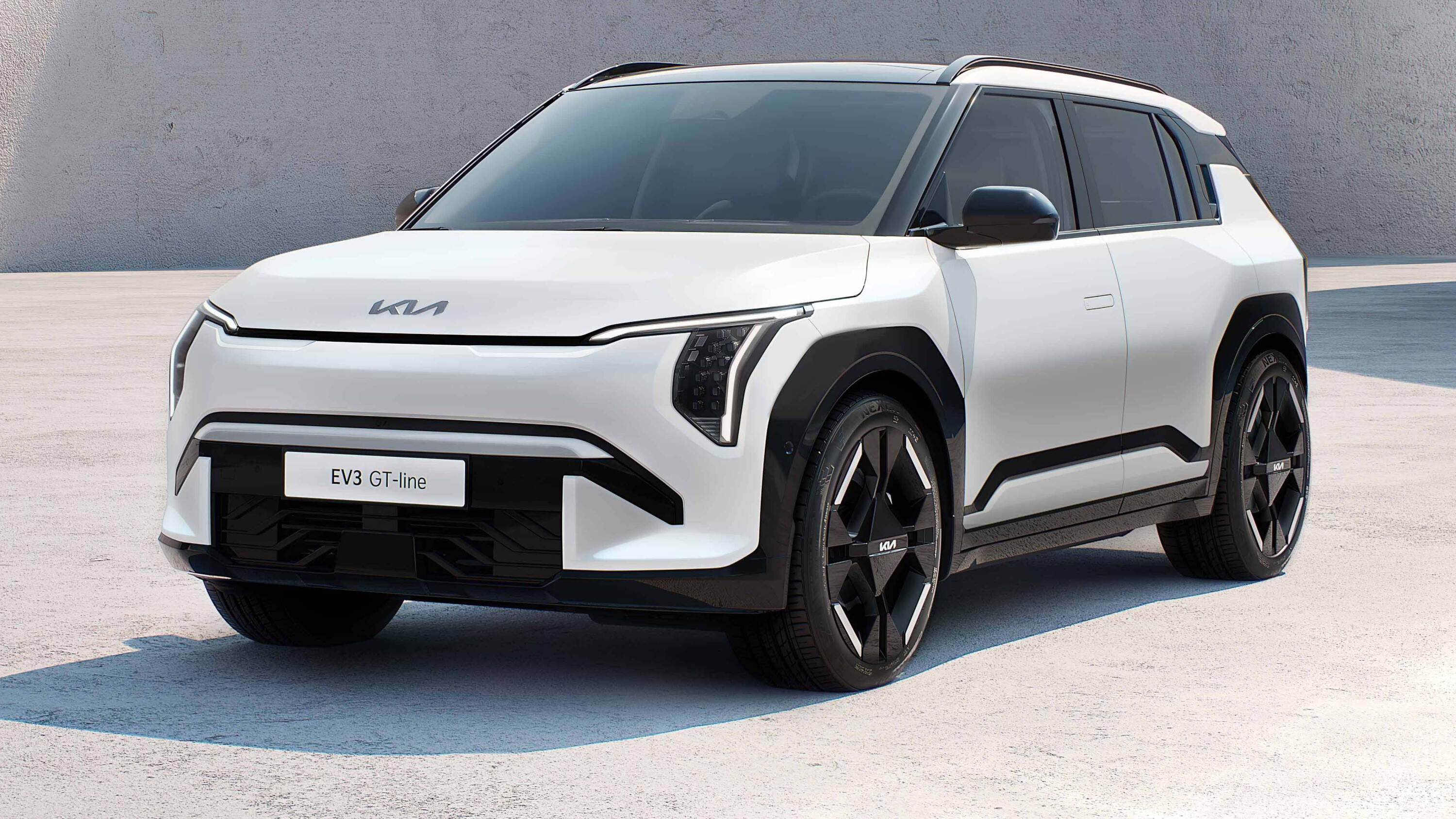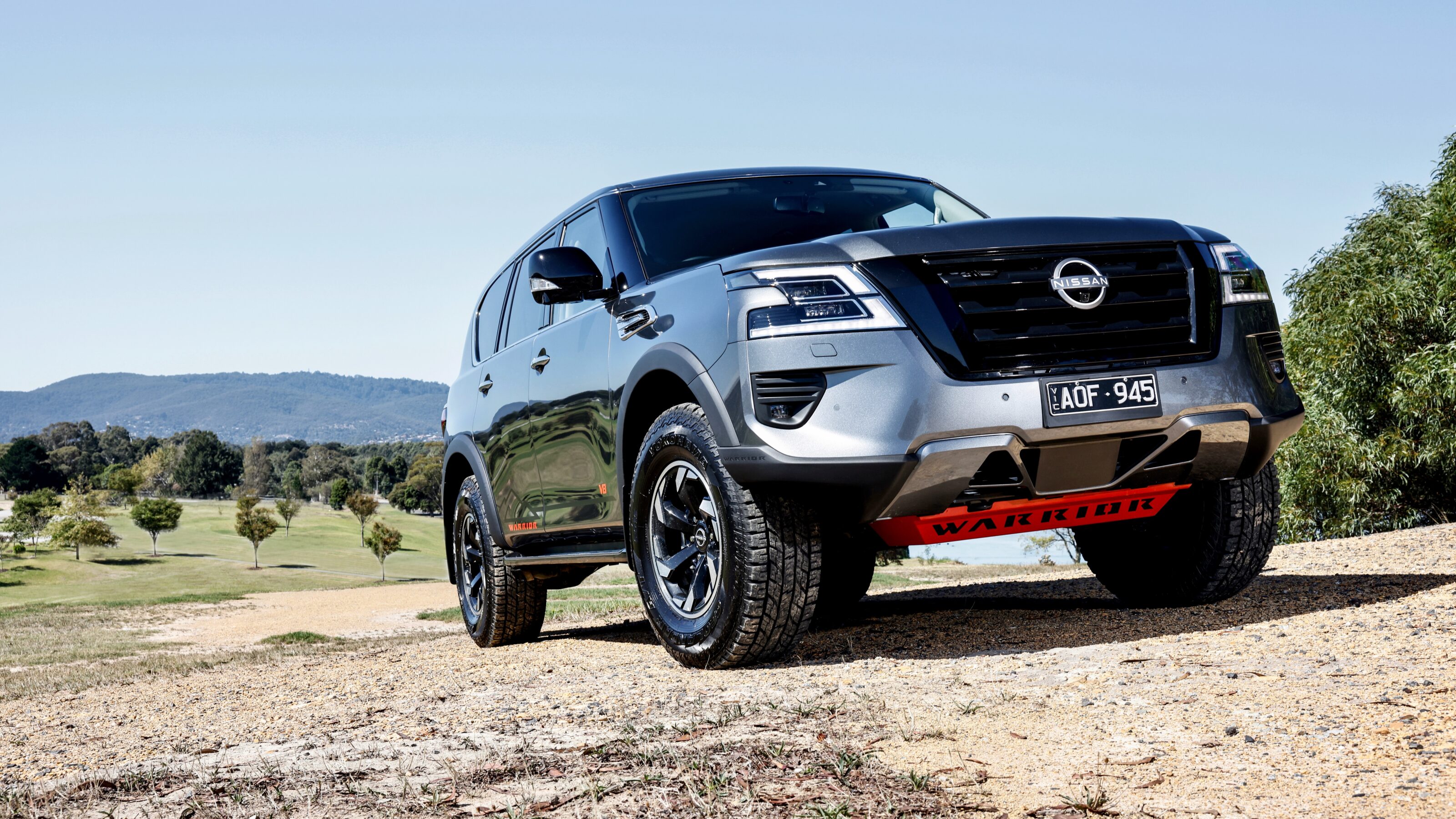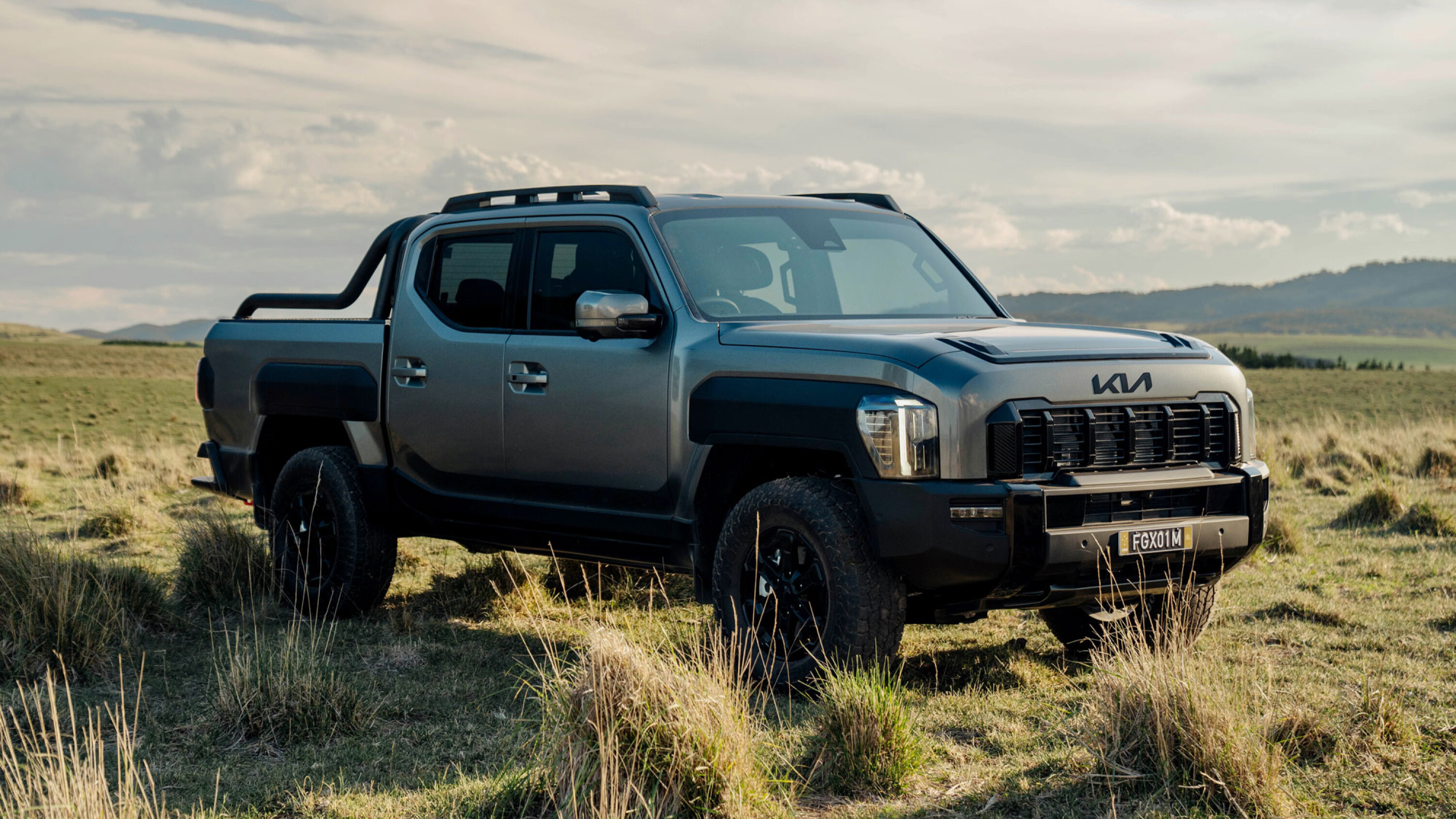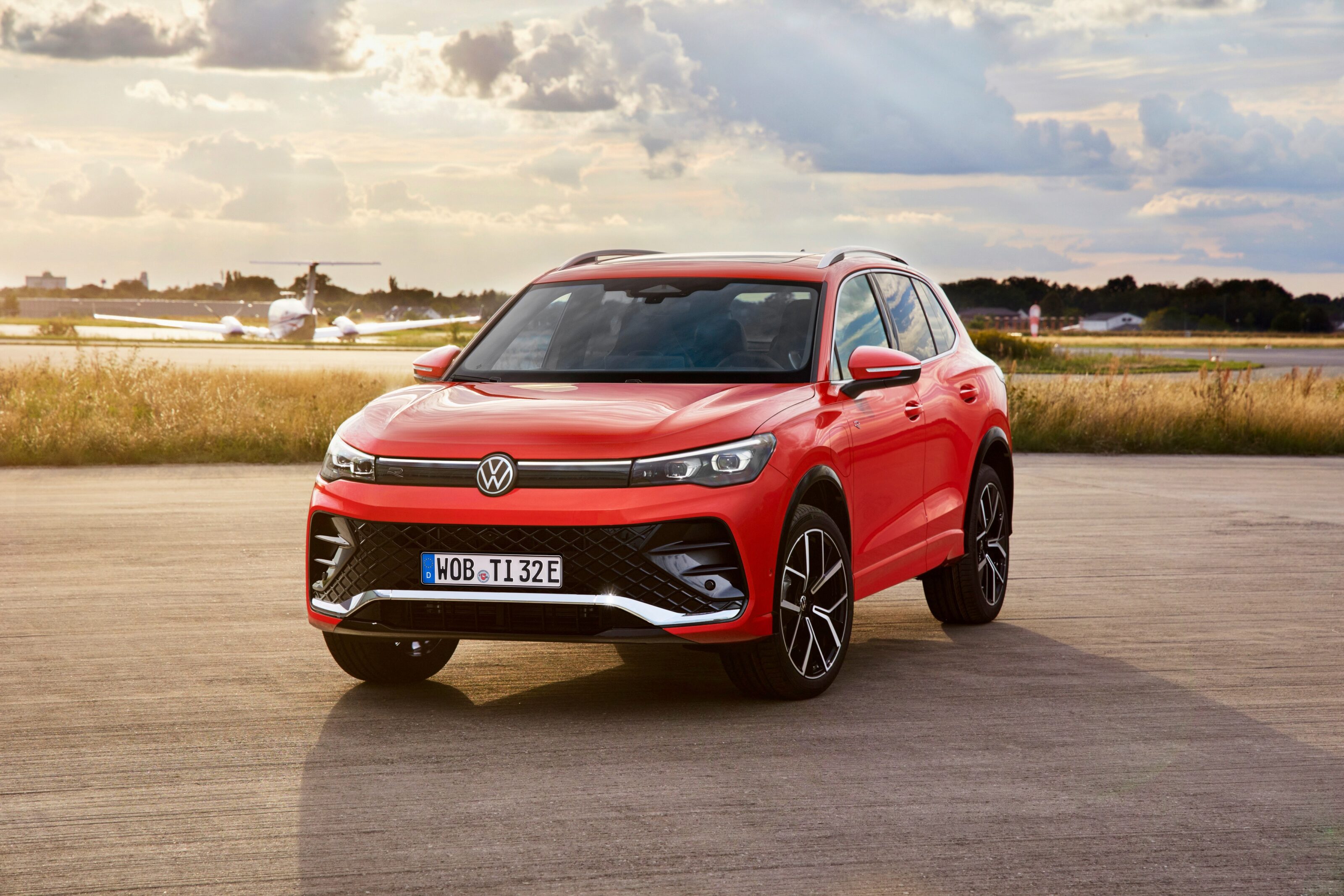The 2025 Kia EV3 electric small SUV – a rival to the Hyundai Kona, Volvo EX30, BYD Atto 3 and MG ZS EV – has debuted ahead of its Australian launch.
Kia Australia has confirmed the EV3 will arrive in local showrooms sometime in 2025 – joining other dedicated EVs like the EV5, EV6 and EV9 – with exact timing to be confirmed closer to its launch.
The EV3 is based on the Hyundai–Kia Group’s E-GMP modular electric vehicle platform – but, like the EV5, it has a front-wheel-drive bias and a lower 400-volt charging architecture.
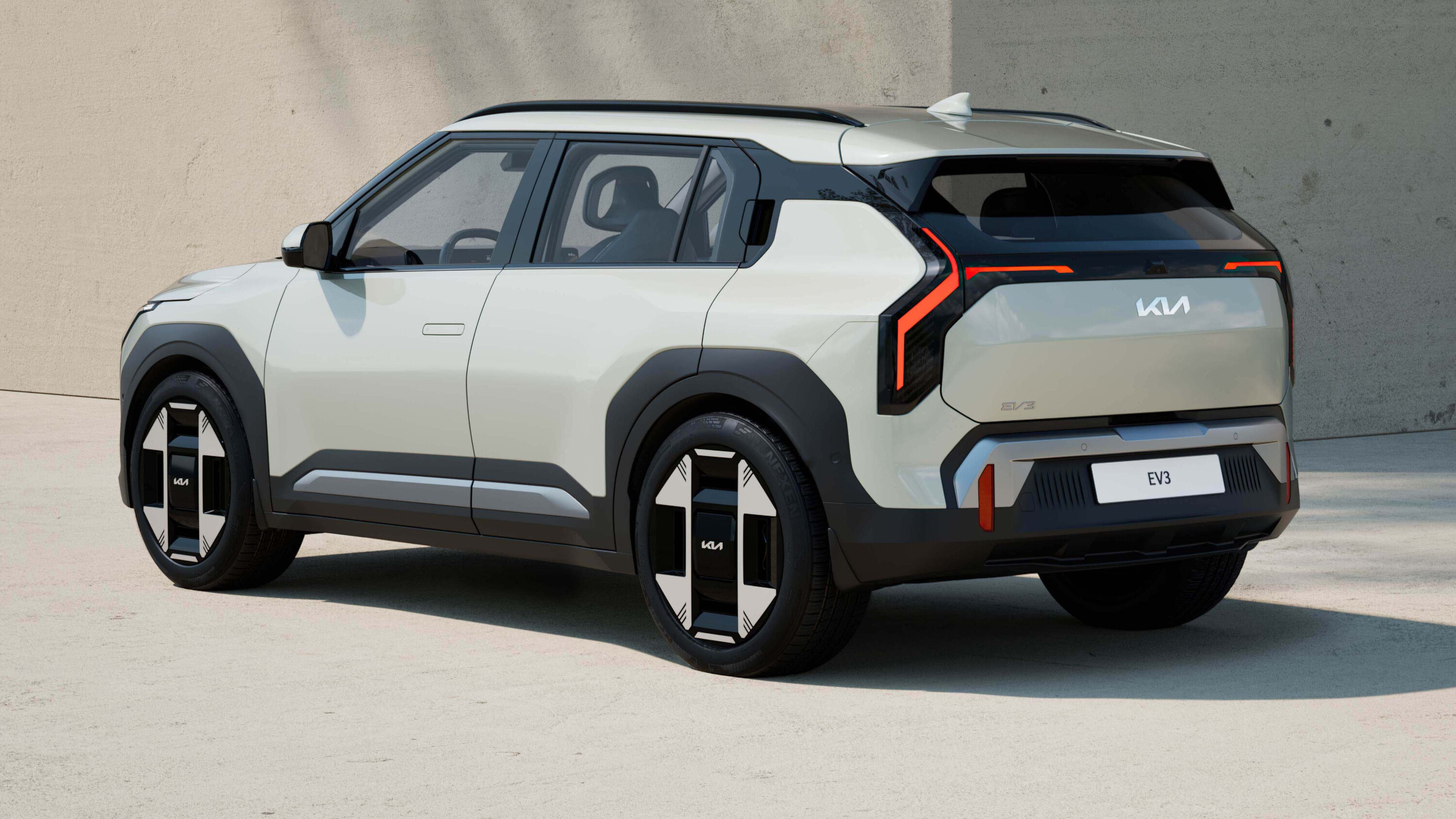
Larger E-GMP electric vehicles like the EV6 and EV9 are based on a rear-biased version of the platform with an 800-volt architecture supporting ultra-rapid 350-kilowatt direct-current public charging stations.
Production of the EV3 is due to commence in South Korea soon, with a global pricing target between US$35,000 and US$50,000 (AU$52,000 to AU$75,000) – positioning it closer to Hyundai Kona Electric and Volvo EX30 than the BYD Atto 3, MG ZS EV and Chery Omoda E5.
The brand was unable to confirm where Australian-market versions will be manufactured. It could follow the EV5 in being sourced from China, allowing for better price parity with its Chinese rivals.
Kia claims it did not benchmark other compact electric vehicles like the Kona or EX30 while developing the EV3 – though it bears a similar shape to its boxy, upright Volvo competitor.
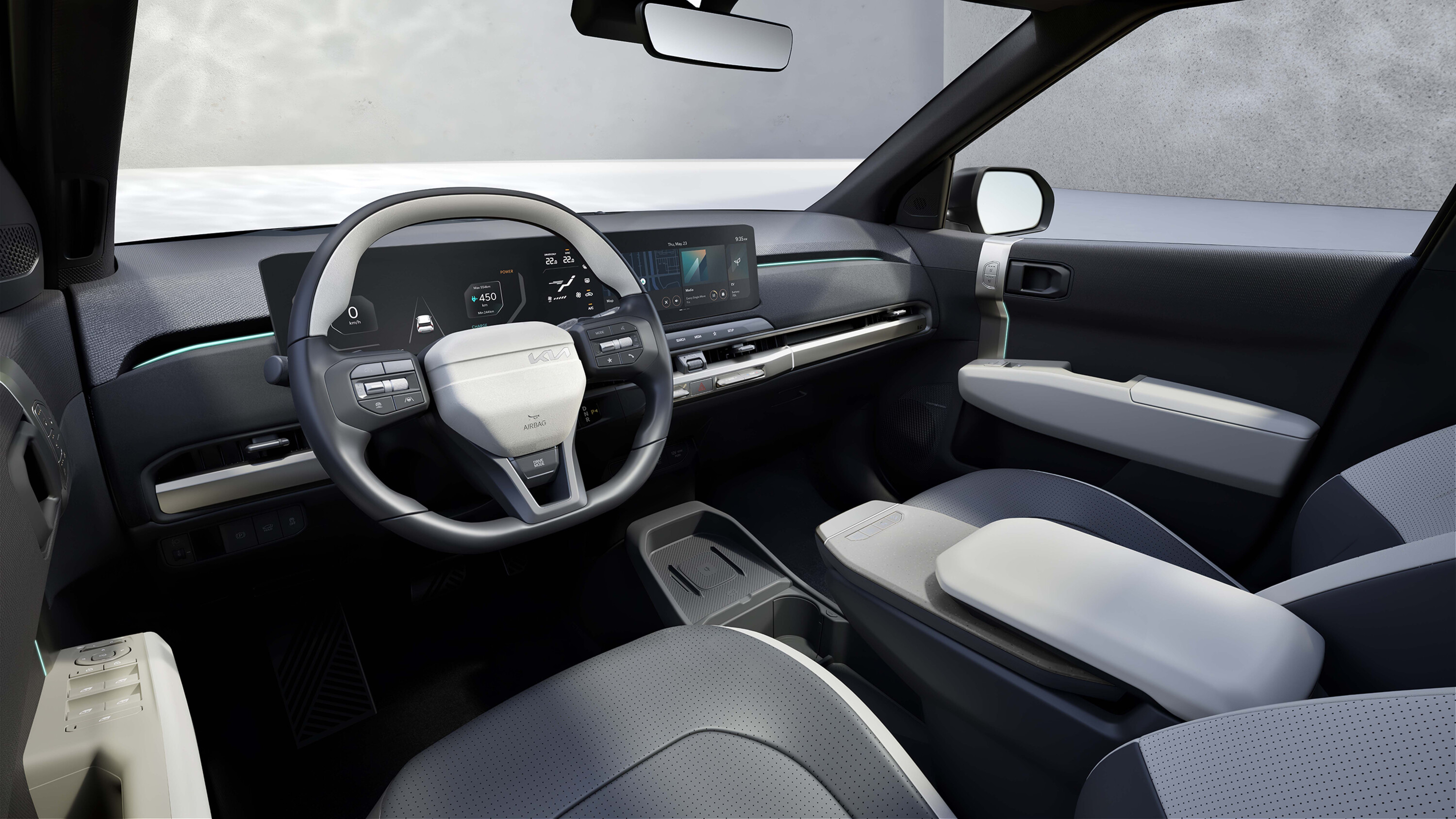
The EV3 measures 4300 millimetres long, 1850mm wide and 1560mm tall, with a 2680mm wheelbase.
It has a 430-litre boot capacity – with a two-tier storage board allowing for 140 millimetres of load height flexibility – and a 25-litre front storage compartment, which is said to be the “largest luggage space in its class” when combined.
Mini matchup: Kia EV3 v Hyundai Kona v Volvo EX30 v BYD Atto 3 v Kia Seltos
Note: List scrolls horizontally.
| Model | Kia EV3 | Hyundai Kona Electric | Volvo EX30 | BYD Atto 3 | Kia Seltos |
|---|---|---|---|---|---|
| Length | 4300mm | 4355mm | 4233mm | 4455mm | 4385mm |
| Width | 1850mm | 1825mm | 1836mm | 1875mm | 1800mm |
| Height | 1560mm | 1580mm | 1549mm | 1615mm | 1635mm |
| Wheelbase | 2680mm | 2660mm | 2650mm | 2720mm | 2630mm |
| Boot space | 460L | 434L | 318L | 440L | 433L |
| Front storage compartment (frunk) | 25L | u2013 | 7L | u2013 | u2013 |
The EV3 will be available in standard or extended-range variants at launch, with the latter offering a WLTP-rated 600-kilometre driving range.
Standard range versions have a 58.3kWh battery pack, while the extended range steps up to an 81.4kWh unit with a claimed 10 to 80 per cent charge time in around 31 minutes.
All versions have a 150kW/283Nm electric motor mounted to the front axle, allowing for a best 0-100km/h time of 7.5 seconds and a 170km/h top speed.
According to Kia, the EV3 has a low drag coefficient of 0.263 Cd – compared to 0.27 for a Kona Electric, 0.28 Cd for an EX30 or 0.33 for a Seltos – with a full three-dimensional undercover.
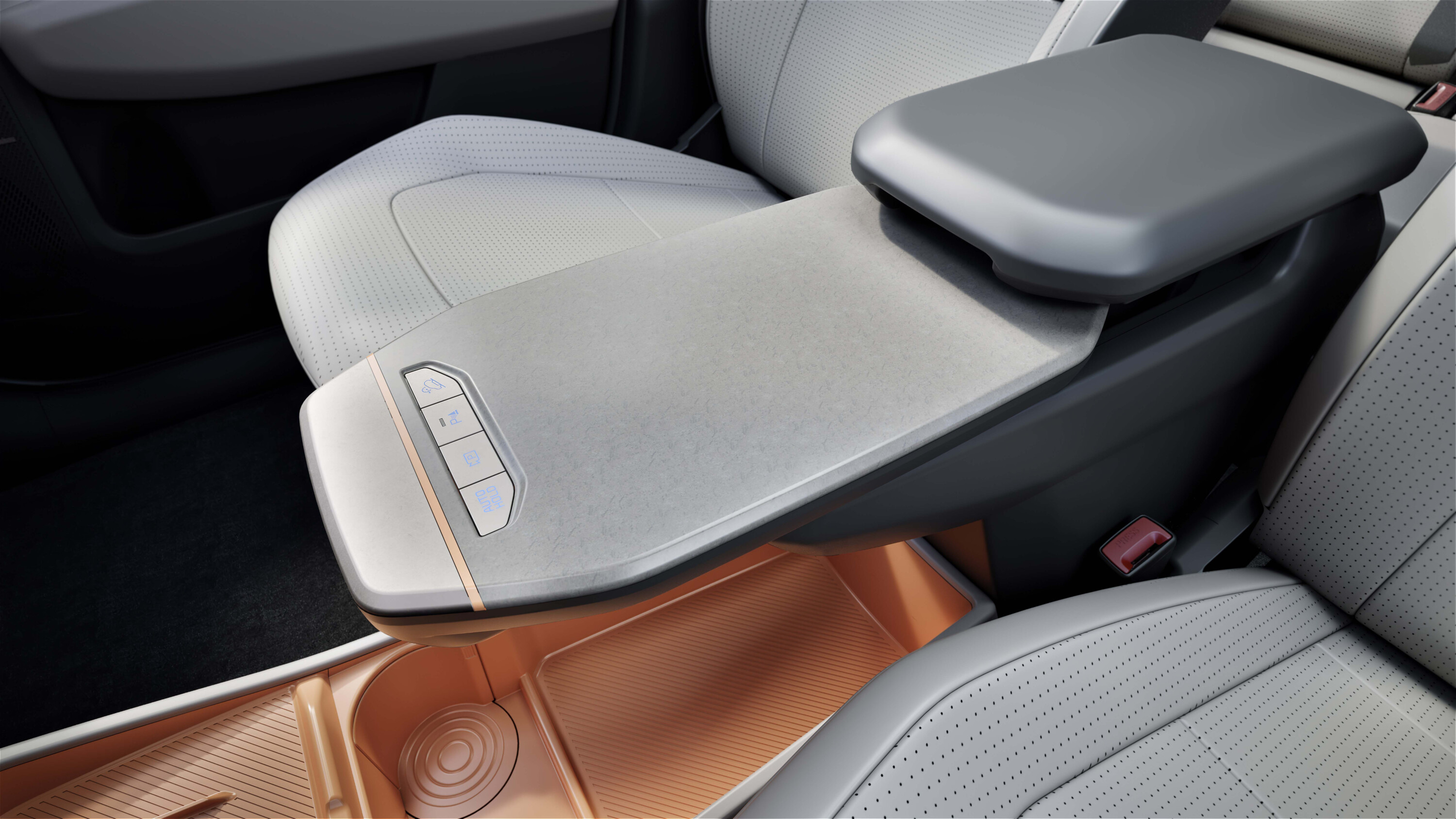
It also has an energy-efficient battery management unit and cell monitoring unit to maximise driving range.
The EV3 follows Kia’s ‘opposite united’ design language with an overall look reminiscent of the larger EV5 and EV9.
A “little sportier [and] dynamic” EV3 GT-Line will be available at launch with body-coloured trim, different bumpers and unique alloy wheels, while a dual-motor EV3 GT will follow later.
Inside, there is a panoramic display with a 12.3-inch digital instrument cluster, a five-inch climate control display, and a 12.3-inch CNNC infotainment system – matching other new Kia models like the EV5, EV9 and K4.
Unlike other electric vehicles from brands such as Tesla and Volvo, Kia has retained physical controls for key functions like cruise control, entertainment, navigation and drive mode – plus traditional stalks and a column-mounted gear selector.
Other interior highlights include configurable ambient lighting, a fold-back relaxation mode for the front seats, an available 12-inch head-up display, and a Harman Kardon audio system.
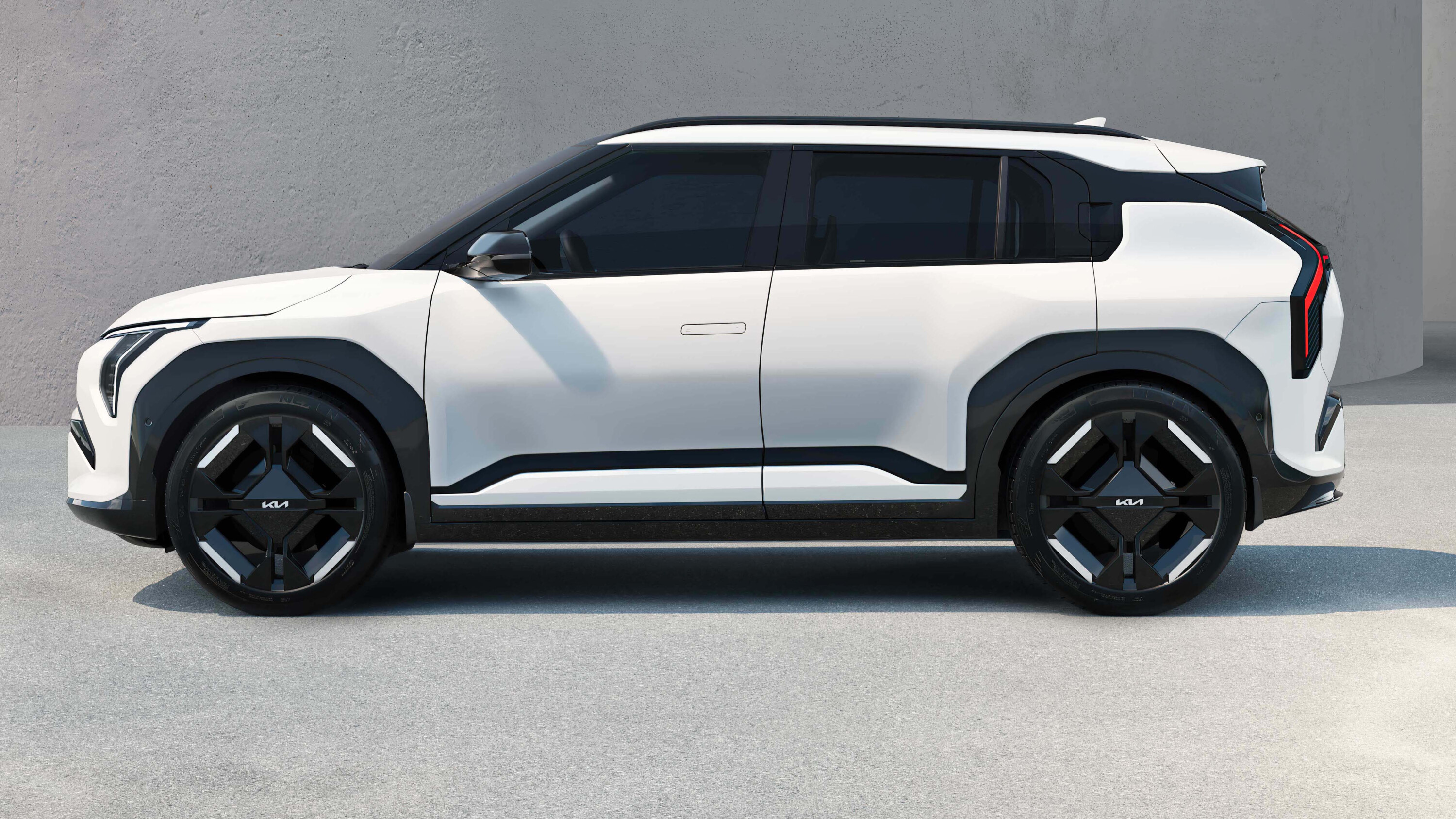
There’s also support for a digital key and in-vehicle or outdoor vehicle-to-load, while owners waiting for their EV3 to charge can watch videos from streaming services like Netflix and YouTube via LG’s WebOS Automotive Content Platform.
Kia has used recycled materials for the dashboard and door trims, as well as polyethylene terephthalate – said to be “among the most easily recycled plastics in the world” – for the seats, headliner, floor mats and luggage board.
First seen in the Cerato-replacing K4 small car, the EV3 is the next Kia model to sport a built-in generative artificial intelligence voice assistant based on a “heavily modified” version of OpenAI’s ChatGPT.
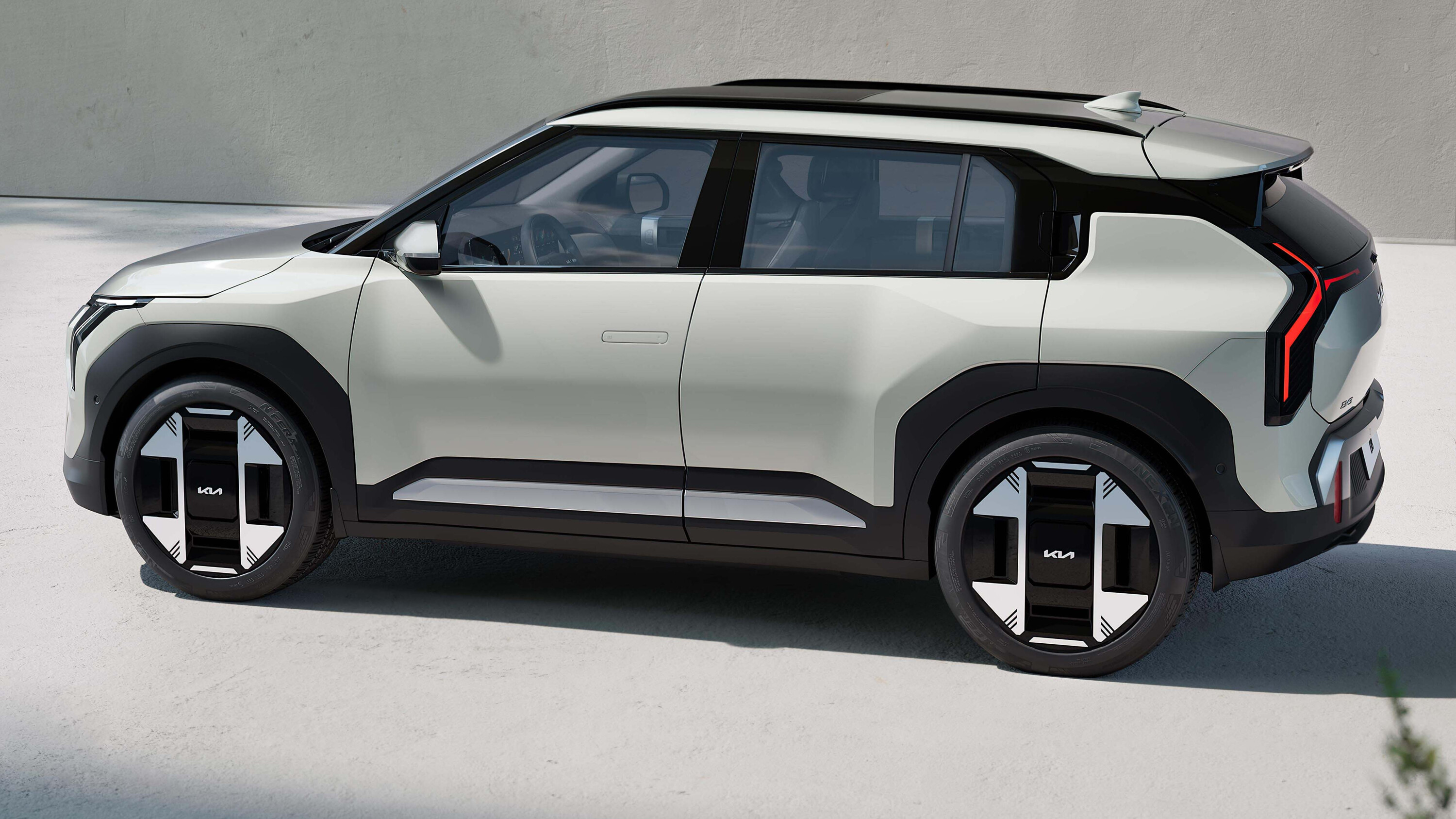
Electric dynamic torque vectoring control and updated ‘I-Pedal 3.0’ with selectable regenerative braking levels for one-pedal driving in the strongest setting have been introduced for the EV3.
Active safety features include autonomous emergency braking lane-keep assist, semi-autonomous Highway Driving Assist, and Remote Smart Parking Assist.
Kia said that the Niro EV – based on the same combustion-first platform as the Hyundai Kona and the new Kia K4 – will continue to be sold alongside the EV3 in some markets, but there will be more focus on the Niro Hybrid.
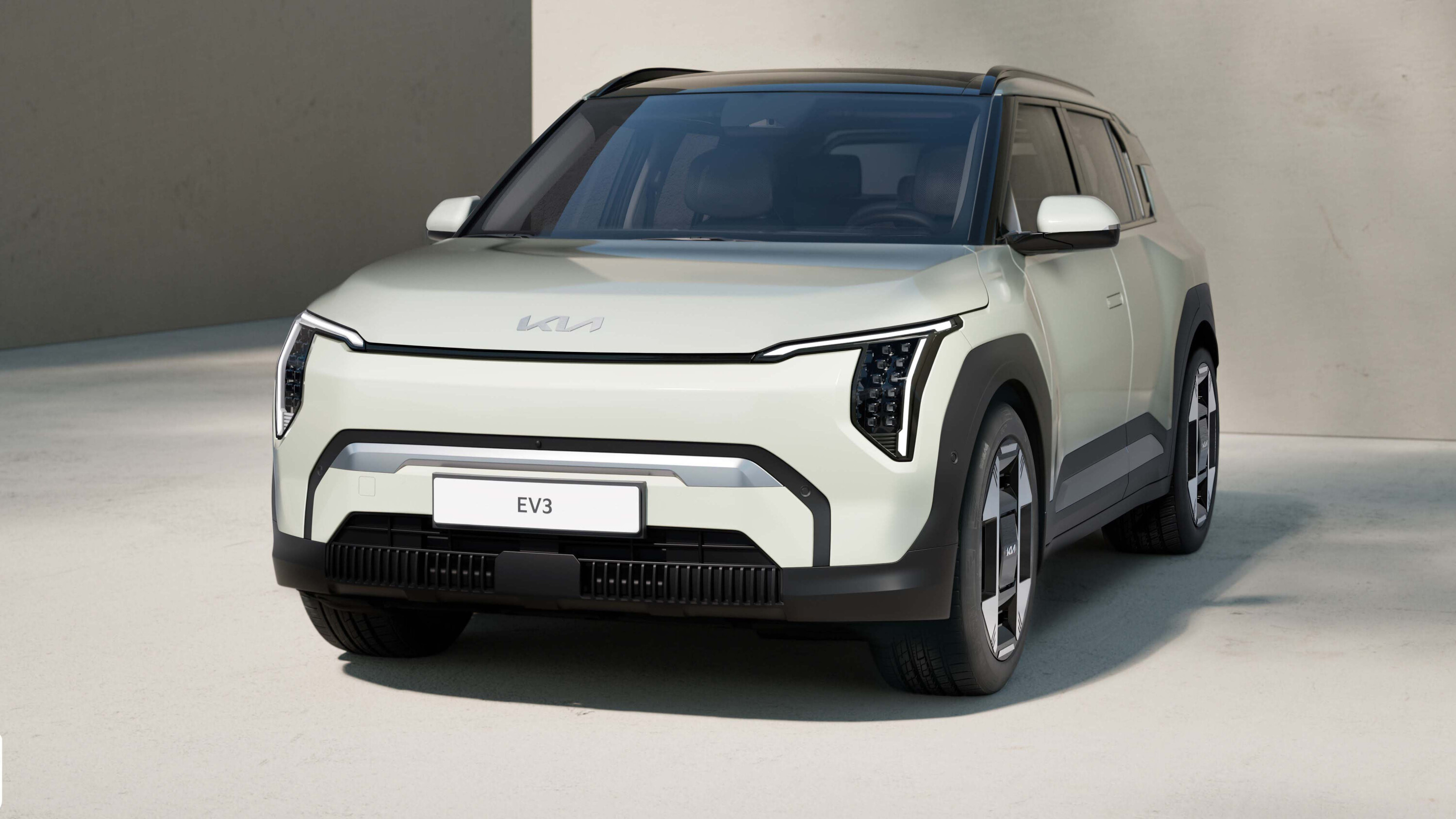
“We will continue to sell Niro EV together with EV3 in the market,” said Kia president Ho-Sung Song.
“Each market has different tastes or customer preferences – that’s why some markets prefer the Niro EV, but maybe some markets are going for more weight for EV3.
“The Niro has a hybrid motor and we expect there will be more weight for the Niro Hybrid model rather than the EV model when we are launching the EV3. We have focused for the EV3 more on EV-dedicated customers, and Niro will be more weighted for hybrid customers.”
Kia said it expects to sell 200,000 EV3s annually.
More details about the 2025 Kia EV3 will be confirmed when it launches in its Korean domestic market in July.
We recommend
-
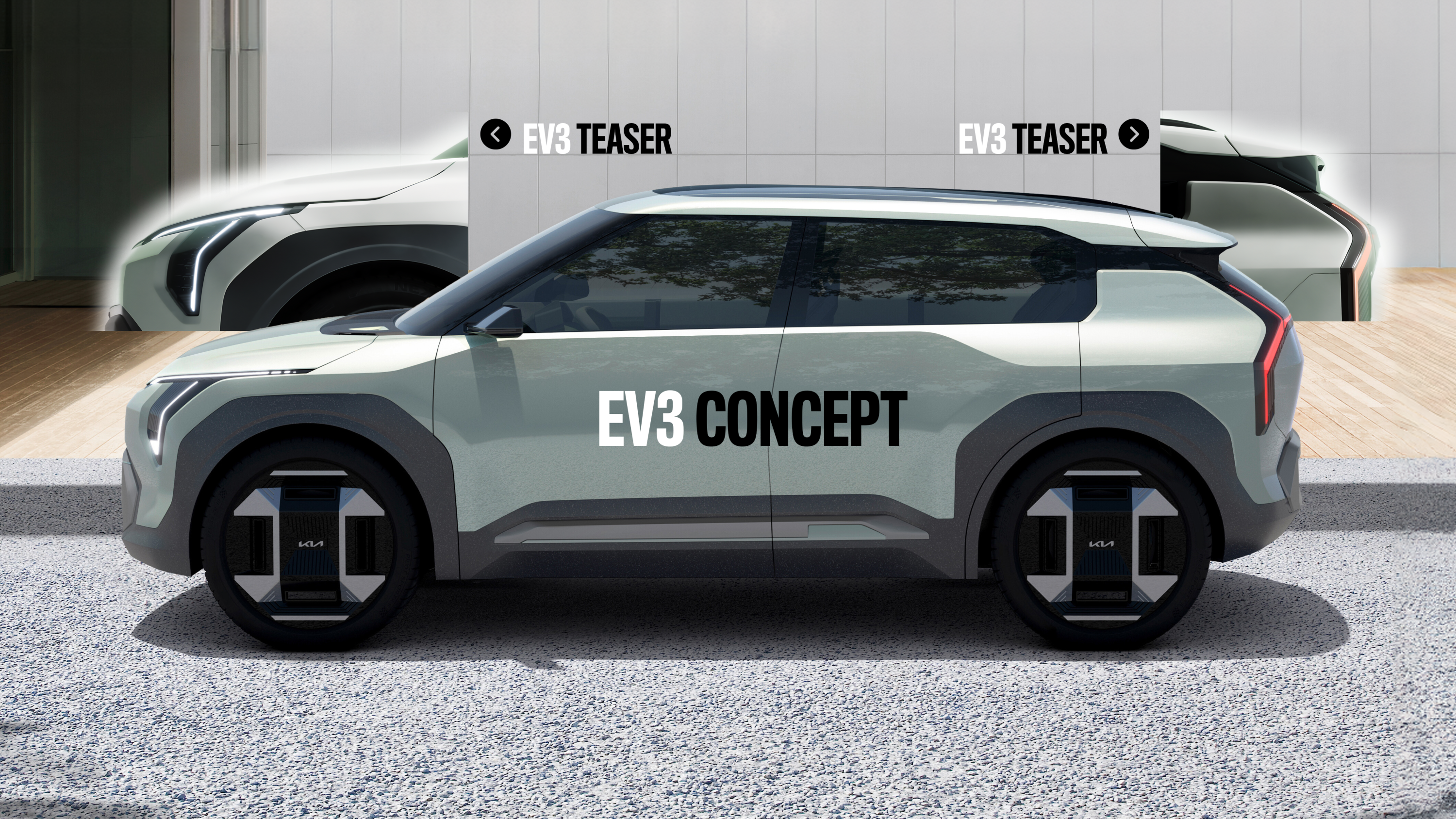 News
NewsKia EV3 small SUV: Everything you need to know
The upcoming Kia EV3 small electric SUV has been previewed, ahead of a global reveal set for May 23
-
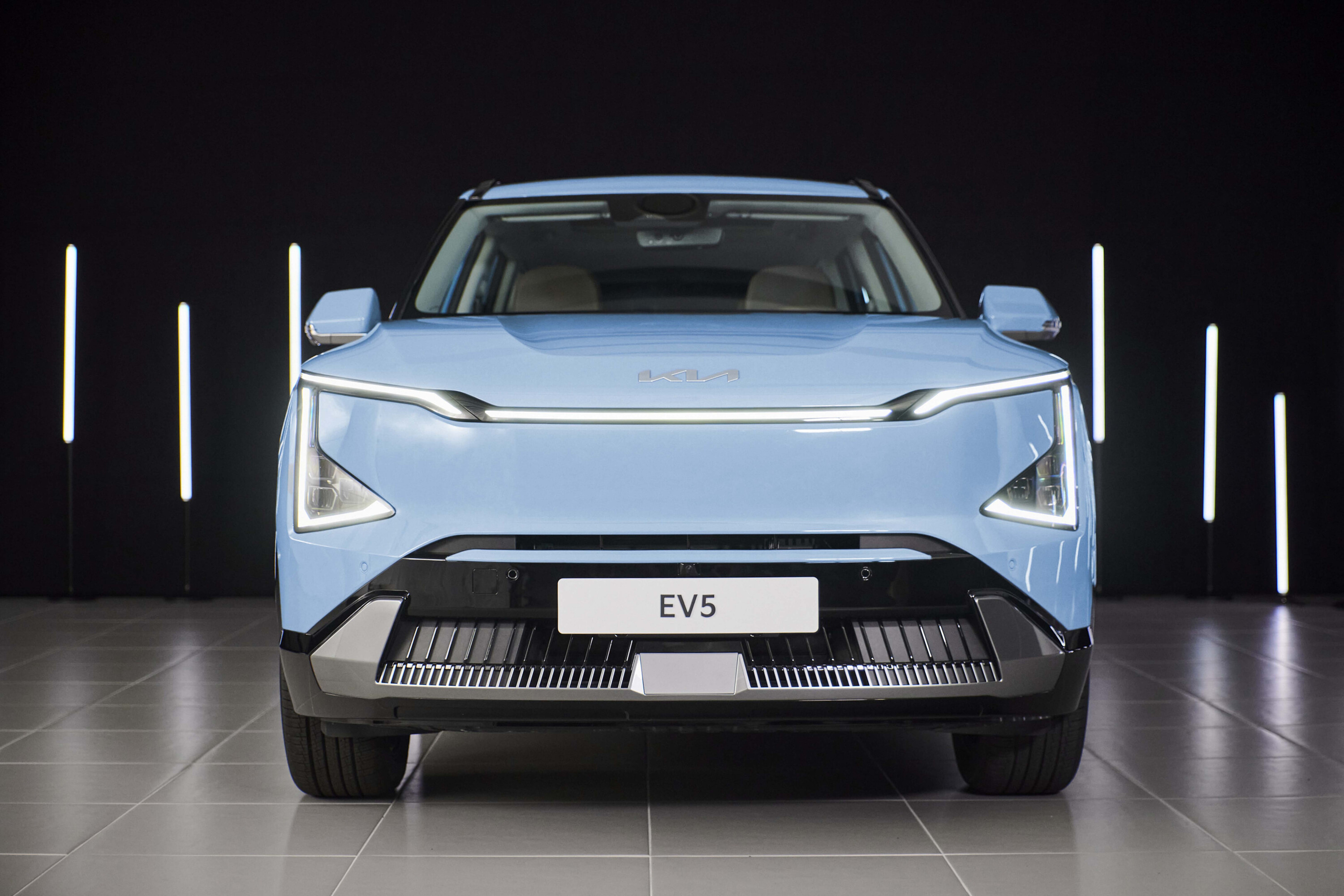 Reviews
Reviews2024 Kia EV5 review: First look walkaround
Kia’s crucial new medium-sized EV5 electric SUV condenses the brilliant EV9’s striking appearance and benchmark interior design into a more compact, much more affordable package
-
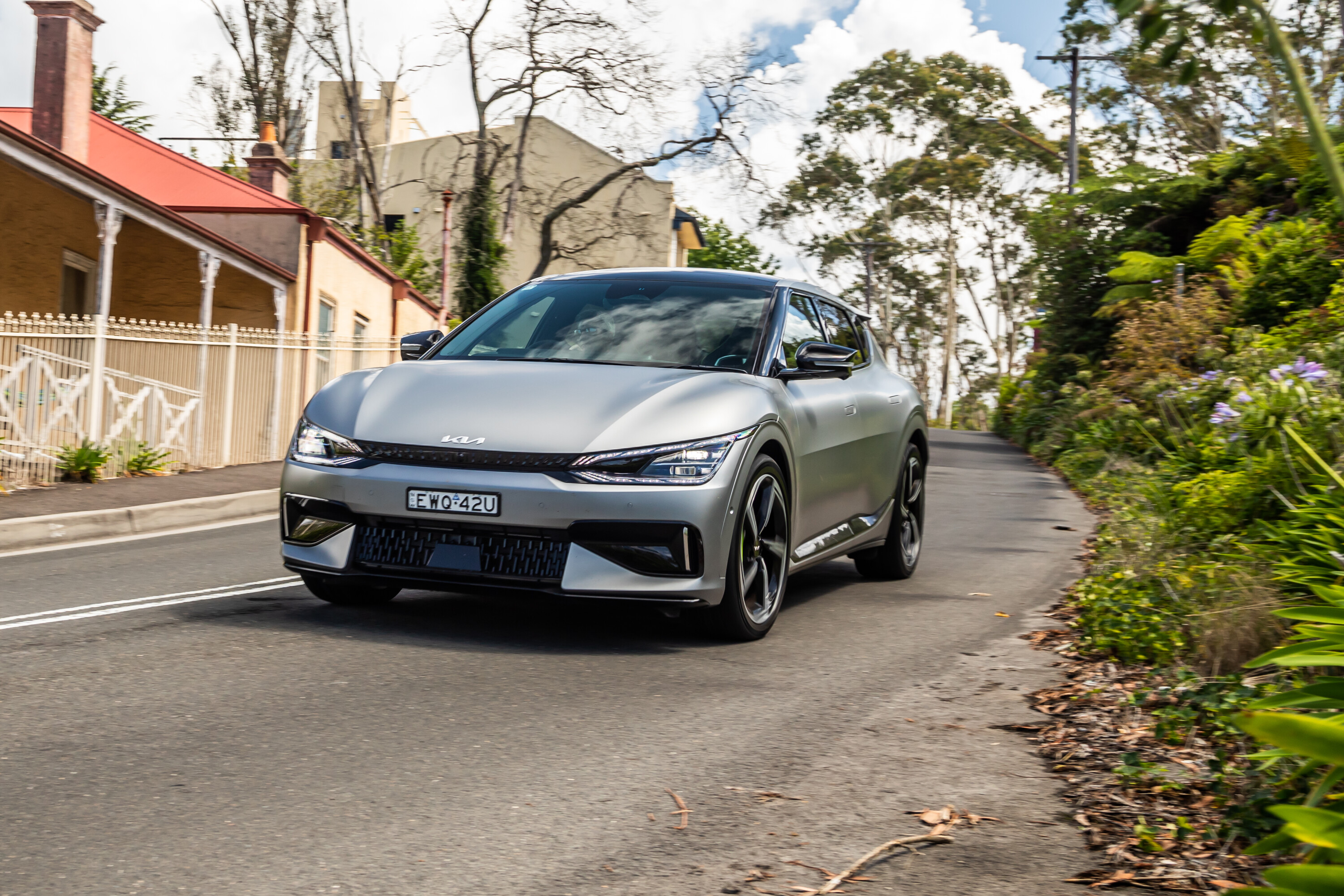 Reviews
Reviews2023 Kia EV6 review: Full range detailed
The Kia EV6 is a sporty electric crossover SUV in Australia. Learn about the EV6 range including price, interior, boot space, safety assists and performance


